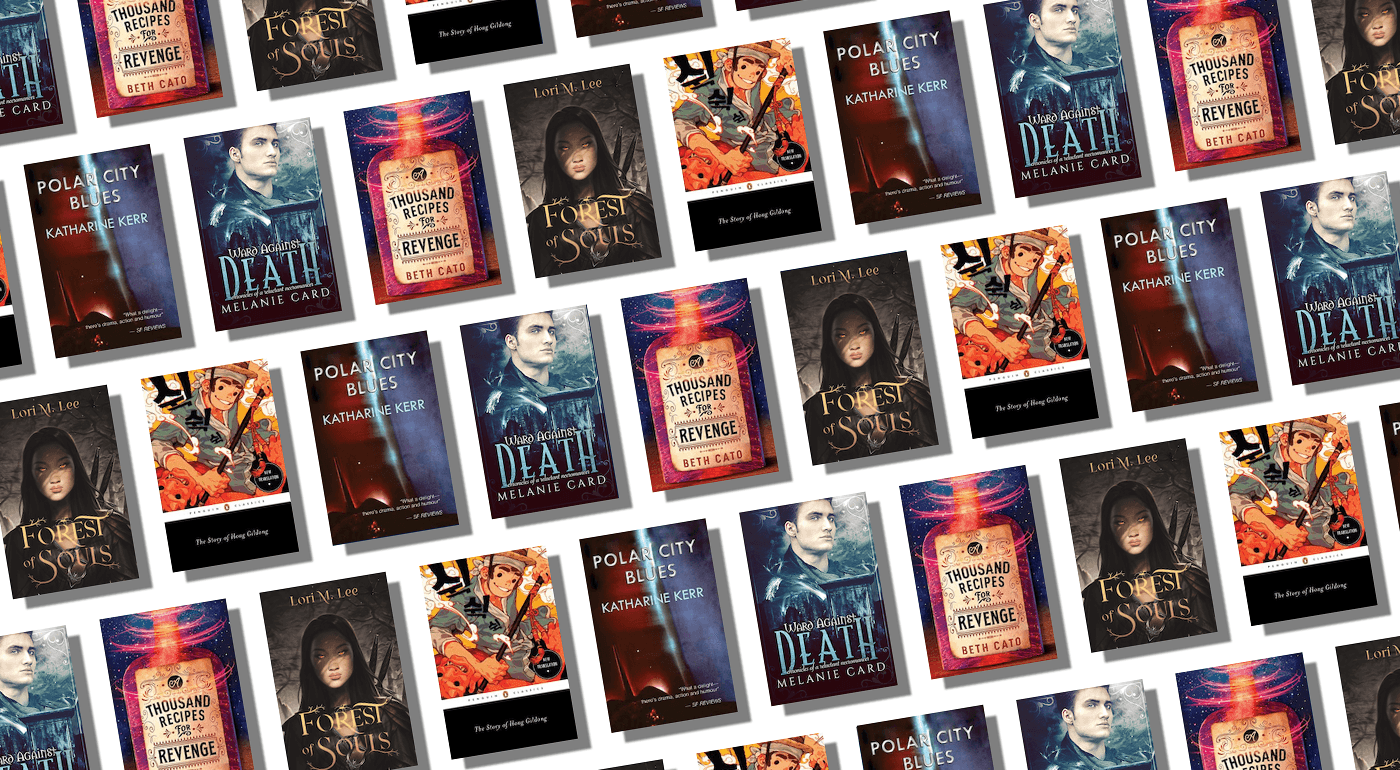Who has not found themselves faced with fiscal impediments, treacherous associates, and disappointing rulers? Ordinary methods for evading such complications are often time-consuming, expensive, or unpleasant. Over the millennia, discriminating consumers have turned to one method to fix such pesky problems: assassination1.
Assassination and assassins have always been plot catnip for SFF authors. Herewith five works that examine the topic.
Polar City Blues by Katharine Kerr (1991)

The Republic’s independence depends on avoiding conquest by either of the Republic’s more powerful neighbors, the Alliance (dominated by the Master Race) and the Confederation (dominated by the carlis). The last thing Polar City Police Chief Bates needs is for someone to target consular personnel. What he gets is the cooling body of murdered Confederation protocol officer Imbeth ka Gren.
Working out who ordered the hit proves straightforward: the Master Race. Determining who the killer was may be more difficult, as the Master Race used a human cat’s-paw. Time is of the essence; job stress has left the Master Race’s chosen tool quite unhinged, and he is a danger to more than one consular staff member.
Polar City Blues is a demonstration of the old adage that sometimes it isn’t the crime that gets one in hot water so much as the attempt at a cover-up. The assassin is trying to eliminate every potential witness to the original murder; there may be witnesses to these new murders, witnesses who must also be killed. Result: the killer may have to murder the entire Polar City population one person at a time2.
Ward Against Death by Melanie Card (2011)
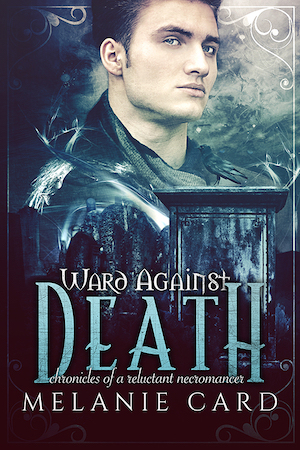
Disgraced necromancer Ward de’Ath is hired by murder victim Celia Carlyle’s grieving family to revive her just long enough for a final farewell. Once resurrected, Celia has other plans: she is determined to find her killer. Celia drafts Ward to keep Celia necromantically animated.
To his increasing alarm, Ward discovers Celia is not some innocent high-born victim. She comes from a family of assassins. Celia is an assassin herself. Her enemies are also experienced killers. Ward’s talents are sufficient to keep Celia alive(ish)… but who is going to keep Ward alive?
Just to clarify, Ward is not disgraced because he is a necromancer. Necromancy is a respected profession. Ward is disgraced because he dabbled in the forbidden art of mundane surgery…
The Story of Hong Gildong translated by Minsoo Kang (2016)
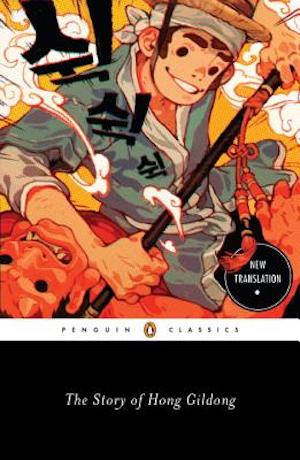
This Joseon Era Korean historical adventure recounts the doings of protagonist Gildong.
If Gildong’s mother had been Minister Hong’s legal wife, Gildong would be ensured a prosperous life as a senior functionary. But he is just the illegitimate son of a maid, and his state-mandated future will be quite humble.
Minster Hong’s wife Chorang fears that Gildong will rebel against his fate. She employs master assassin Teukjae to kill the youngster. Gildong would be doomed—were he not a boy of sterling character, keen insight, scholastic talent, and sorcerous skills.
As you might expect, Gildong is not in fact doomed. If I were to compare him to Western mythical figures, he would be a combination of Robin Hood and Merlin. Those who oppose him end badly.
Forest of Souls by Lori M. Lee (2020)
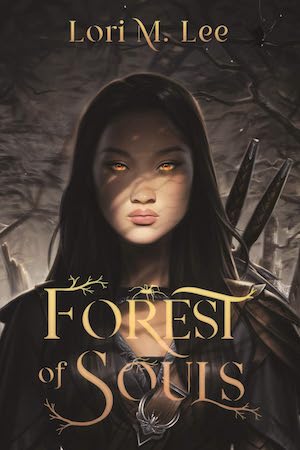
Foundling Sirscha Ashwyn escaped from a humble life of servitude by apprenticing to Kendara the Shadow, master spy/assassin for the kingdom of Evewyn. In return for being taught skills of combat and stealth, Sirscha carries out Kandara’s orders without question.
What should have been a straightforward career arc of murdering people until she encounters someone even more skilled is complicated when Sirscha’s slain companion Saengo very unexpectedly comes back to life. Sirscha discovers that she is a shaman and Saengo is now her familiar.
This unexpected revelation has many consequences, not least of which is that powerful people now need Sirscha dead.
While Sirscha is a perfectly sensible person who pursues entirely logical courses of action, this cannot be said for those she encounters. There are a surprising number of opponents who, when confronted with Sirscha, think fighting her is a good idea.
It is not a good idea.
An additional complication: Saengo is surprisingly ungrateful for resurrection, given that his only other option is being a corpse.
A Thousand Recipes for Revenge by Beth Cato (2023)
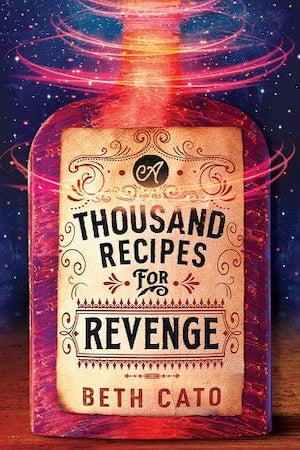
Princess Solenn is slated to marry Verdanian Prince Rupert; the alliance may save her nigh-defenseless kingdom of Braiz. But Rupert is being targeted by an assassin (something that Solenn knows but dares not explain).
How does she know? Solenn is a Chef, born with enhanced taste and smell. She can tell when food and drink has been poisoned. This talent could be useful to powerful people, who would be happy to put Solenn on their staff—by any means necessary. She cannot reveal her talents without inviting danger.
Solenn tries to protect Rupert without revealing that she is a Chef. Solenn fails to protect the Prince. Her attempts to protect him inadvertently give the impression that Solenn herself was the assassin. An unpleasant death seems certain.
The discovery that an angry god plans an apocalypse is almost a welcome distraction.
Recipes is yet another fantasy set in a secondary-universe monarchy. It does not make a good case for monarchy as an effective system of government. If anything, it argues the opposite. Braiz’s monarchs treat Solenn as the national designated Redshirt, while Rupert’s father, King Caristo, confuses vindictiveness with prudence. At least the people have the gods to turn to…except in this case, the gods seem even less reliable than the monarchs.
Professional assassins being as useful as they are—not least to authors—they appear in many SFF novels. The five works I’ve discussed are only a tiny sample of assassin-focused literature. Feel free to mention the more obvious omissions—yes, yes, even that Pratchett book—in comments below.

